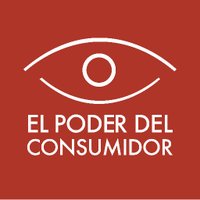
Laura Lara-Castor
@laularac
PhD student Nutrition Epidemiology & Data Science @TuftsNutrition | Research Double burden of malnutrition @globaldietdata | MS @BU_Tweets | Previous @1CINyS
ID: 891254372
19-10-2012 15:52:37
272 Tweet
378 Takipçi
564 Takip Edilen



Con 80 votos a favor, 26 en contra y 1 abstención en el Senado de México, hoy queda aprobada en lo general y en lo particular la Ley de #EtiquetadodeAlimentos en México. #EtiquetadoClaroYa #EtiquetadoDeAdvertencia



Research from Tufts Nutrition supporting the need for healthier food options away from home

Chile was the first country to mandate front-of-package warning labels, restrict child-directed marketing & ban the sale in schools of all “high-in” food and beverages. The result? Lindsey Smith Taillie & colleagues found that sugary beverage purchases ⬇️ by 24%. sph.unc.edu/sph-news/chile…



Muchas felicidades Dr. Simón Barquera! Muy bien merecido! Y que sigas contribuyendo con tus conocimientos y entusiasmo a la salud pública de México!


Adult consumption of sugar-sweetened beverages is up 16% (from 1990 to 2018), but decreased in high-income countries and Latin America during that time. New study led by Tufts Nutrition doctoral student Laura Lara-Castor breaks down global SSB intake and trends by age, education, etc.


Sugar sweetened beverage (SSB) intakes among children and adolescents increased globally by 23% between 1990 and 2018 - new research in The BMJ led by Laura Lara-Castor as part of her dissertation with us Tufts Nutrition Tufts University. Full text at bmj.com/content/386/bm…



“This study highlights the need for targeted education & policy interventions to change behavior early on & prevent the adverse outcomes associated with sugar-sweetened beverage intake in childhood," said 1st author Laura Lara-Castor, a Tufts Nutrition grad & postdoc fellow at Institute for Health Metrics and Evaluation (IHME)

🥤Las bebidas azucaradas tienen una gran responsabilidad en el crecimiento alarmante de la #diabetes en el mundo. 🌍⚠️ La Dra. Laura Lara-Castor, investigadora de un reporte internacional, lo explica con datos contundentes. 📊 Conoce más de sus hallazgos 👇 elpoderdelconsumidor.org/2025/01/la-dia…

Que gusto ver que en la conferencia mañanera de la Presidenta de México 🇲🇽 Claudia Sheinbaum Pardo, el secretario de SALUD México mencione los profundos daños a la salud de los refrescos y que para hacerlo utilize evidencia del INSP México. Ahí el secretario aclara que los refrescos light



